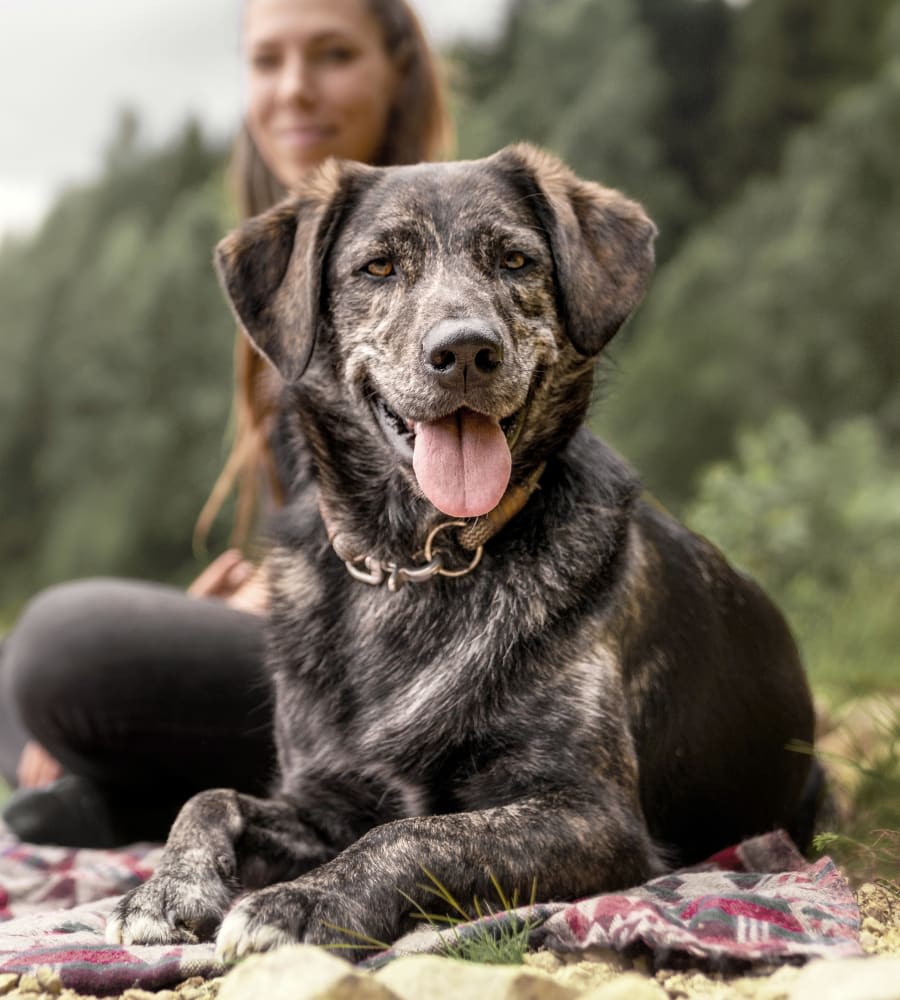Caring for Pets With Bone & Joint Issues
Orthopedic surgery for pets focuses on procedures that address the joints, bones and associated soft tissues, including muscles, cartilage, tendons, and ligaments. These conditions can lead to significant pain and greatly diminish your pet's quality of life.
Dr. Kevin Kreier, a veterinarian at Badger Veterinary Hospital, performs orthopedic surgeries for dogs and cats at our hospital.
If your pet was born with a genetic abnormality, has sustained a painful joint injury, or has developed a chronic condition such as hip dysplasia, orthopedic surgery may be the solution. From planning and performing your pet's surgery to guiding you through providing post-op care at home, we'll do whatever it takes to restore your pet's health.

Orthopedic Surgery FAQs
-
Why is my pet limping when they walk?
Disease or injury can affect the bones, nerves, tendons, ligaments, or muscles of a cat or dog's legs, causing lameness, pain and/or mobility issues. Any of these could cause your pet to limp.
Your veterinarian can assess your pet's condition and may recommend orthopedic surgery to correct the problem. The specific surgery recommended will depend on a variety of factors, including the underlying issue, your pet's overall health, age, lifestyle, and more.
-
What happens during a veterinary pre-surgical orthopedic exam?
A pre-surgical orthopedic exam will help your vet better understand the condition of your pet's bones, joints, and ligaments, and how it may be affecting their health and mobility.
Your veterinarian will take the time to explain your pet's issue, perform diagnostic tests and recommend appropriate surgical or other treatments.
This exam is the best tool we have to minimize risk of complications during or after your pet's surgery.
-
What types of diagnostic tests are required before a veterinarian performs orthopedic surgery?
During a pre-surgical physical exam, your veterinarian may order diagnostic tests including bloodwork, radiography (X-rays), urinalysis, a musculoskeletal ultrasound, or others to confirm your pet is healthy enough to undergo an orthopedic procedure.
-
What kind of post-operative care will my pet need after surgery?
The post-operative care your pet will require will depend on the type of surgery performed, your pet's health, estimated recovery time for the procedure, and more.
You may need to administer medications at home, restrict your pet's exercise and physical activity, and come in for follow-up appointments to ensure your cat or dog's recovery is progressing as expected.
Common Orthopedic Conditions
-
Hip Dysplasia
Hip dysplasia occurs when the hip socket doesn't fully cover the thighbone, leading to partial or complete dislocation. It's common in large breeds like German Shepherds and Golden Retrievers. Total hip replacement is the most effective surgical solution, using metal and plastic implants to restore normal hip function.
-
Cruciate Ligament Tears
Torn cruciate ligaments in dogs, just like in people, must be surgically repaired to prevent arthritis. There are different types of surgical procedures that can be used to repair this injury, and the type used typically depends on the size of the dog.
-
Bone Fracture Repairs
Leg fractures are common in pets and typically result from being hit by a motor vehicle. These injuries can be treated in a variety of ways depending on the type of fracture and where it has occurred.
In some cases, your vet may choose to wrap the limb in a cast to treat certain fractures. However, surgical intervention will be needed for other types of fractures. Metal screws, rods, plates, or pins may be required to hold the bone in place while it heals.
-
Luxating Patellas
A luxating patella occurs when the knee cap slips out of its natural groove at the end of the femur, affecting many dog breeds, large and small. Surgery is recommended for pets with significant lameness to keep the knee cap in place.
-
Disc Disease
Just like humans, dogs can develop disc issues in their neck and back. Small breeds like Dachshunds and Poodles often suffer from neck disc problems, while large breeds tend to experience lower back issues. Early surgery improves the prognosis for dogs with advanced disc disease.
